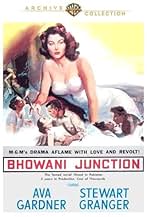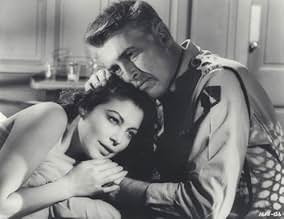Produced barely a handful of years after the tumultuous period in question, the film delves further into events and attitudes that would have been comparatively unfamiliar to North American audiences - perhaps explaining, in part, its middling box office performance.
One can only speculate as to whether the project was part of a Cold War ploy to woo India away from its affection for Russia; however, dialogue early on does make specific reference to worries about Russian influence. If there's any validity to that speculation, then its ambitions extended beyond the box office (and might have been realized..?).
I agree with those commending director Cukor for his handling of the wide screen spectacle and action. I suspect that Richard Attenborough took notes from Cukor's visual approach in pre-planning his "Gandhi." Yes, other directors (e.g., Victor Fleming, Gone With the Wind, to mention but one) achieved more memorable tableaux; but this was an honourable entry in a still-evolving format at the time.
I'll yield to others' opinions on the performances - with the exception that I found Bill Travers's character and his portrayal were a one-note annoyance throughout. I mean, at least get a dialogue coach and find a credible accent, already!
It would be interesting to recover Cukor's original cut of the film, notwithstanding the apparently negative audience reactions at the time. The voice over post-facto narrative technique the studio imposed was hackneyed even then.





































